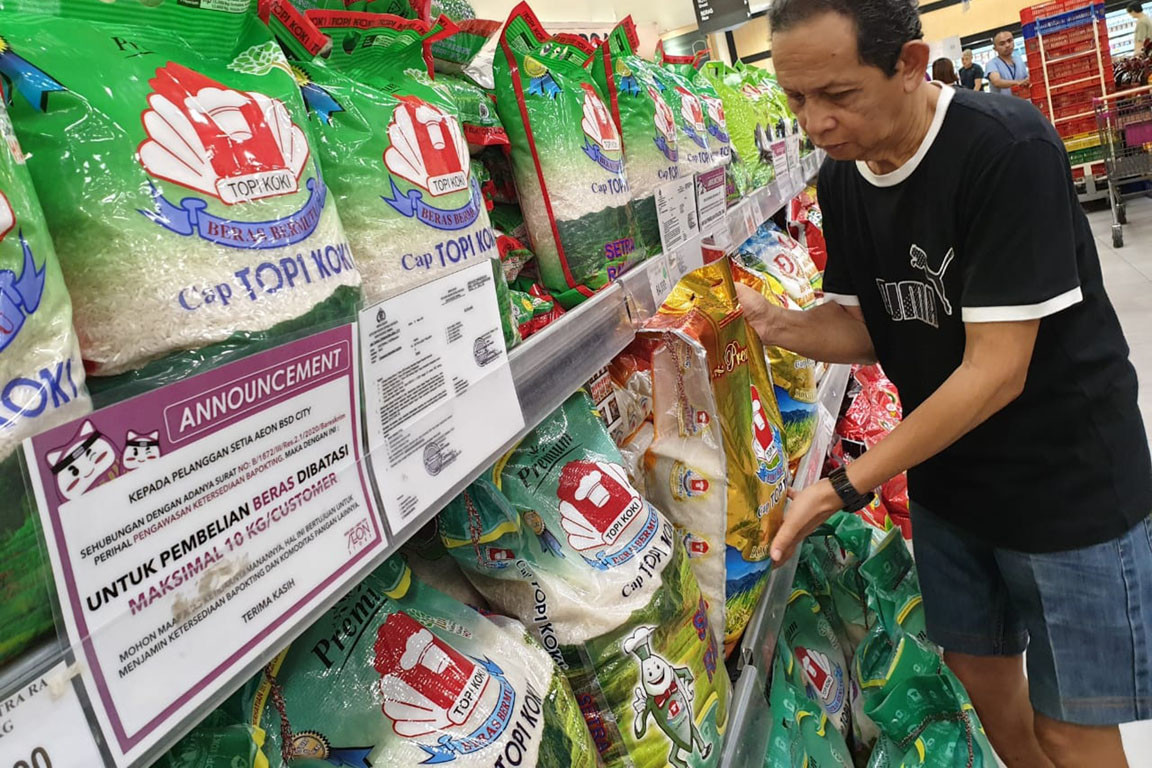Popular Reads
Top Results
Can't find what you're looking for?
View all search resultsPopular Reads
Top Results
Can't find what you're looking for?
View all search resultsIndonesian urban consumers more optimistic than global peers: Survey
64 percent of Indonesian consumers say they are going to spend more over the next few months.
Change text size
Gift Premium Articles
to Anyone
I
ndonesian urban consumers are more optimistic than their global peers despite more consumers being impacted financially as a result of the COVID-19 pandemic, a survey has shown.
According to the recently launched Global Consumer Insights Survey 2020 by PricewaterhouseCoopers (PwC), 64 percent of Indonesian consumers say that they are going to spend more over the next few months, compared to 33 percent seen in the global survey results.
Respondents in Europe, for example, are fairly more pessimistic, with 71 percent saying they will either spend around the same or less in the upcoming months. Meanwhile, the same survey said 19 percent of Indonesians would spend around the same and 17 percent of respondents said they would spend less.
“Indonesian consumers are actually quite optimistic and intend to spend more in the future. And we can see that from a global perspective, that optimism is not shared,” PwC retail and consumer leader Peter Hohtoulas said during a webinar on Thursday.
The COVID-19 pandemic has deeply affected Indonesian consumer’s purchasing power, as many have lost their jobs while businesses and factories ground to a halt. A significant decrease in consumer spending is evident by recently released data from Statistics Indonesia (BPS) that said household spending contracted by 5.51 percent year-on-year (yoy) in the second quarter of this year.
The Indonesian government has rolled out programs to cushion the economic impact of the pandemic. Among others, it is subsidizing electricity fees to accelerate recovery in business operations and household spending.
Indonesian consumers’ optimism is particularly unique as more consumers in Indonesia have been financially affected by the pandemic in comparison to global consumers.
According to the PwC survey, 65 percent of the Indonesian respondents said they had experienced a decrease in household income, meanwhile, only 45 percent of the global consumers reported likewise.
The decrease in income is also accompanied by an increase in household bills, including expenses for food and electricity. Around 63 percent of Indonesian consumers say they have experienced an increase in household bills, while that figure is 41 percent for global consumers.
Peter explained that the optimism was mainly driven by the country’s younger cohort, including millennials. Being a country with a relatively young population, the future of consumer spending looked good from an Indonesian perspective, Peter said.
“Consumers will come back to the market and we have seen this in other markets as they have opened up,” Peter noted, adding that despite the positive signals, businesses would still need to plan with cautions as a rebound might be short-lived due to new outbreaks.










